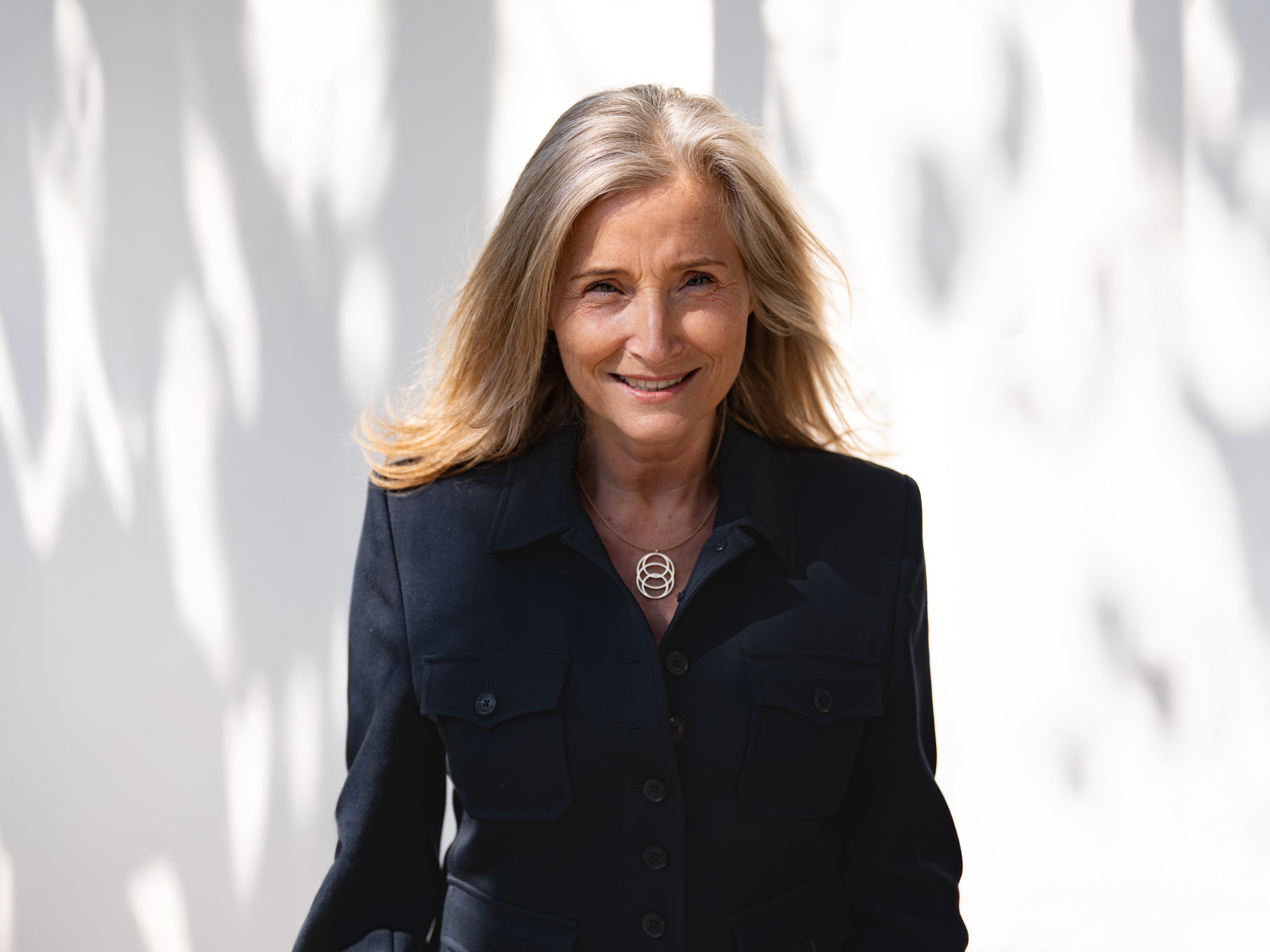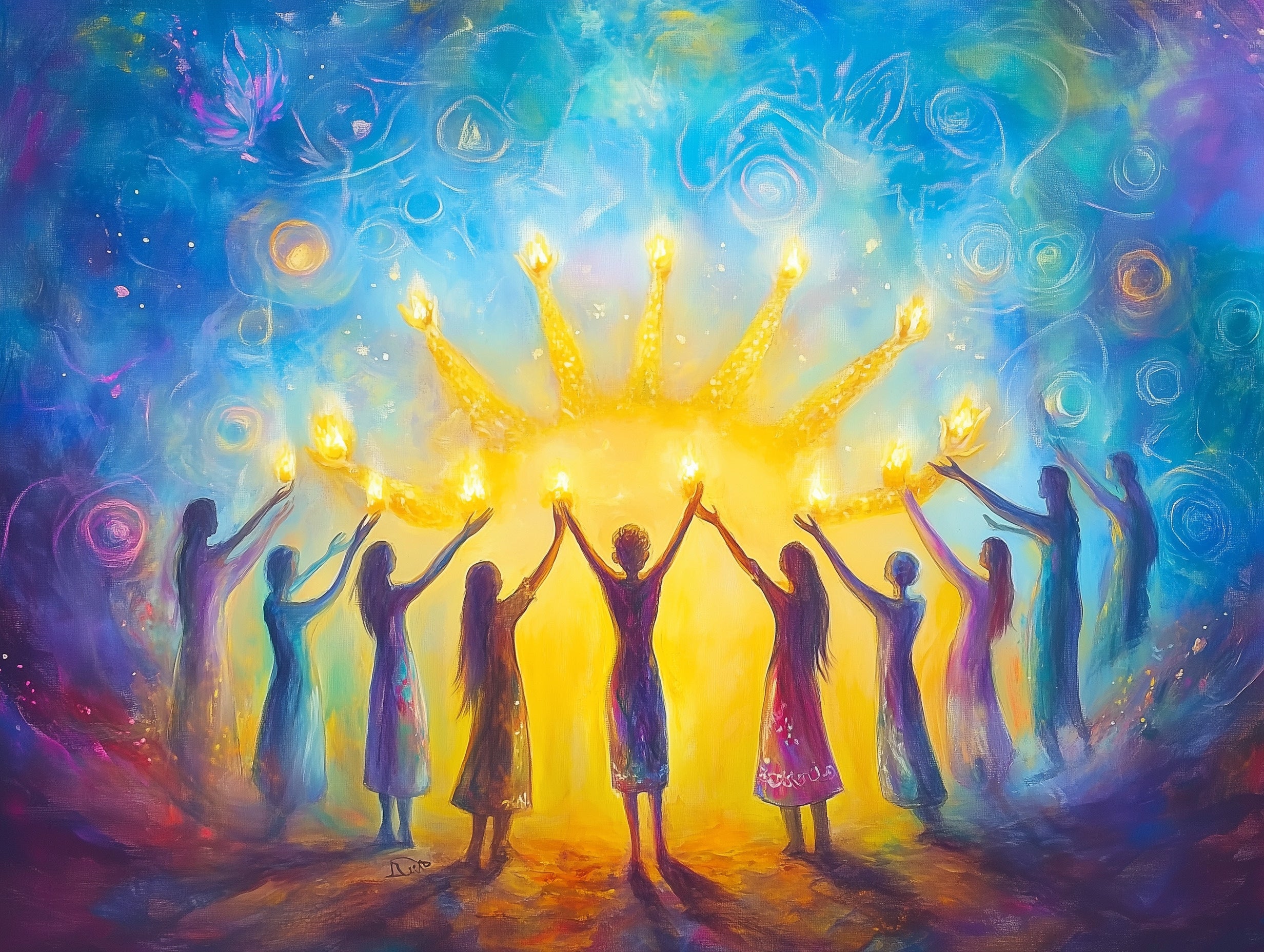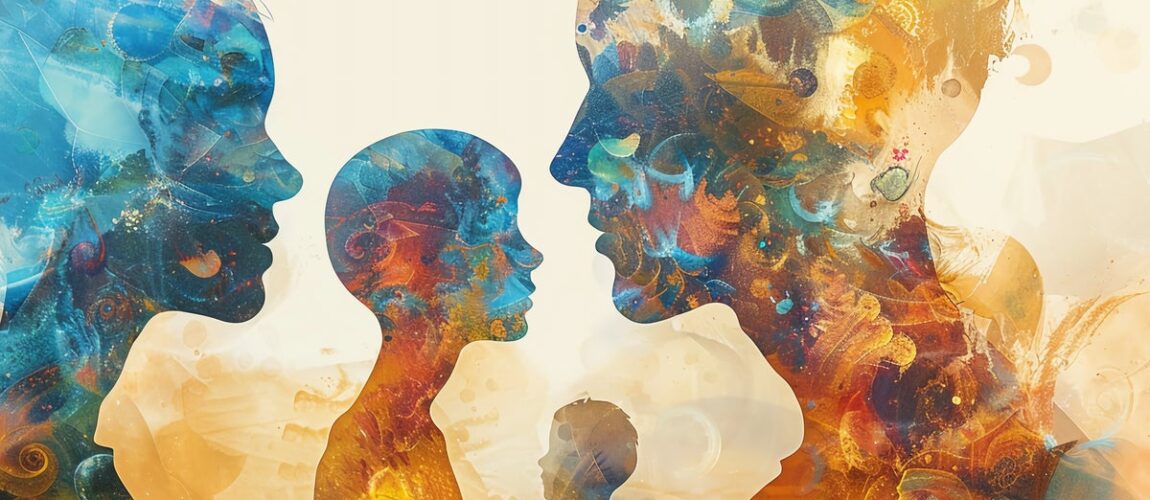Imagine you could watch a group of strangers act out your innermost private feelings and relationships with family members – with intense and uncanny accuracy. That’s what happened when I found myself sitting in an armchair, slack-jawed and bewildered, as constellation facilitator Els van Steijn, her team and my friend moved around a room in central London.
In this “family constellations” session, my friend– who joined for moral support but is now going above and beyond the call of duty by playing me – says her feet are stuck in concrete and she feels dissociated, like she’s off in a dream world. My mother is crouched and hiding behind me, while my dad is off staring at his own father. With every question Van Steijn puts to either the pretend me or my pretend relatives, they fast-forward through key dynamics in my family history. Some events and feelings I knew about, but there were more secretive issues even I was not privy to and Van Steijn could not have known. Yet, later, checking facts with members of my real family, they would turn out to be entirely correct.
I’ve tried many types of therapeutic and healing practices before, both as a journalist and enthusiast, and feel like I’ve seen it all. There have beencharlatans, wishy-washy treatments packaged in new age marketing, and methods that reportedly help some and do nothing for me. But the people who served as “representatives” were provided with very little information: I told them in a couple of sentences what I would like help with (relationship issues, a general amorphous feeling of being unable to move forward as I’d like) and a very brief topline of which family members I had known and if I liked them. So, how were they able to create such a detailed picture of my family as this intricate interconnected system – or, in the language of this work, “a constellation”?
This unique form of psychospiritual therapy, developed decades ago by the late German psychotherapist Bert Hellinger, involves many complex layers. It’s not (yet) scientifically proven; “we don’t know how it works, that’s the problem – but we see countless times that it does work and has a huge impact on people’s lives,” says Van Steijn, who has provided over 10,000 constellations for clients. Neither is it psychodrama, a different therapy type where you act out your emotions and concerns with others. The least generous take I could offer is that a family constellation feels like a year of talking therapy in an hour and a half. A more accurate assessment is that it’s eerily similar to getting a reading from a shockingly accurate psychic-medium. But by the end of the process, I found it not eerie at all, rather, comforting and life-affirming.
You may have heard of constellation therapy: it was featured prominently in Netflix’s Sex, Love & Goop docuseries and recently The Guardian’s psychotherapist columnist Philippa Perry recommended it to someone writing in with family problems. In the Netherlands it is practically on its way to becoming a national pastime. Much of this reception can be attributed to Van Steijn and her book The Fountain: Find Your Place, her re-interpretation of Hellinger’s work, which has remained on the Dutch bestseller list since its 2016 release.
She hopes the time is now right for constellations to gain traction in the UK. There’s certainly growing momentum in these ideas with It Didn’t Start with You: How Inherited Family Trauma Shapes Who We Are and How to End the Cycle by Mark Wolynn, founder and director of the Family Constellation Institute. Originally published in 2016, the book – much like The Body Keeps the Score during the Covid-19 pandemic – is enjoying a late bloom thanks to word of mouth and social media buzz.

This year, Van Steijn is expanding her popular practice into the UK with the aim of helping people with problems that somehow can’t be fixed using your conscious mind. Maybe you are making similar mistakes over and over, or have a feeling you can’t shake that something is “off”. According to Van Steijn, stubborn patterns in your life are sometimes not your fault at all, which is near-thrilling for many of us. They often predate you. This echoes what Carl Jung and Aniela Jaffé wrote back in the Sixties in his influential book, Memories, Dreams, Reflections: “I feel very strongly that I am under the influence of things or questions which were left incomplete and unanswered by my parents and grandparents and more distant ancestors. It often seems as if there were an impersonal karma within a family.”
The theory behind family constellations is that your family is a system and the system wants to be whole. The system knows no morals. Everyone in the family has to be acknowledged and recognised with respect, no matter what they’ve done. If this is not the case, then descendants (ie you and I) will act out those patterns from a blind loyalty, even if we don’t consciously know what they are. I enjoyed Van Steijn’s metaphor of the fountain when I read the book a few months before meeting her in person: imagine the family system as a fountain with your parents and great grandparents and so on above you. You are in the bottom tier and in order for your life to flow as it should, you must remain in your tier. The reason you would unconsciously ascend to a different tier is if you’re trying to rescue your parents or grandparents, or you’re judging them. This is mostly unconscious, rather than something you might be aware of. A family constellation brings all of this to the surface for an individual. Once it’s in your conscious awareness, that problem apparently seems to settle.
Any logical person – or you, reading this now – will have to suspend your disbelief when taking part in a constellation. For the sake of my family’s privacy, I won’t share everything that happened in the room in mine but midway through, Van Steijn chose to represent my grandmother’s first husband. He is unknown and unnamed to my family, except for having been abusive; my grandmother had to leave him, and shortly after, met my grandad and they had more children, including my mother. I’d always admired that she had the strength to do that in a time when women would be expected to grit their teeth and deal with unpleasant or dangerous behaviour from their husbands – but that’s as much thought as I’d ever really given to that first husband.
If you don’t grant all of your family their rightful place, as we saw with your constellation, it goes to the next generation or the next
Els van Steijn
As soon as he came into the constellation, my other family members reacted poorly, mostly hiding, and my friend, representing me, lit up: “To me all his anger doesn’t feel scary at all,” she said. “I’m even thinking that if my grandad isn’t here to block me, I would want to become this man almost. I want to merge somehow.”
Seeing my confusion from the armchair, Van Steijn explains, “The system wants to be complete. This first partner is part of your family system. The systemic perspective doesn’t take into account ethics. You are the only person who is capable of seeing the whole package deal of this person and can look in a kind way to him.” I feel almost angry about this – why have I chosen this man or why has this man chosen me? Van Steijn is sympathetic but finds nothing about this, or my reaction to it, out of the ordinary: “It could have been your brother or sister. It’s good or bad luck. We don’t know. But can you observe the love you have for this person? This love will make it difficult for you to have a loving relationship with someone else. There’s hardly any place for a partner.”
My friend confirms that she is feeling an overwhelming sense of love for him and Van Steijn’s conclusion is that I have ascended in the fountain to my grandparents’tier, assuming undue responsibility.
If this sounds weird to you, imagine how it sounded in the room to me. We go on to look at what else might be blocking me: owing to what was going on with my family system, Van Steijn points out that the feeling of being stuck in concrete and constant daydreaming began at about age 10. As a survival tactic, she says, I had to abandon part of my child self there, at that age. “This was no life as a child – it was too confusing and complex. If you’d been present for everything that was happening, from the point of view of the survival mechanism, that would not have worked, so you split the ability to be present off into that child component as well.” I have no way of verifying if what she’s saying is true but I do strongly recognise that I have always seemed to dissociate and daydream, to my detriment. When I was invited to participate in the constellation, my friend representing me said she felt the heaviness starting to lift and she could move her legs.

After I’ve hugged my 10-year-old self in the body of my friend, she and I spontaneously walk over to the window to stand looking out of it. Van Steijn gives me sentences to say to individual family members, which are along the lines of: “I leave with you what is yours and accept what is mine.”
Van Steijn tells me she’s worked with both victims and perpetrators of the worst crimes imaginable. You don’t have to have a family member in your life if they’ve done you wrong or it’s not safe to – but through family constellations, you are urged to change your inner stance towards them. “If you don’t grant all of your family their rightful place, as we saw with your constellation, it goes to the next generation or the next,” she tells me. “The moment you really see your fate and embrace it – even a heavy fate – and see that it’s yours, you will feel lighter and gain strength.”
Since family constellations deal with deep emotional issues, including trauma, Van Steijn advises those with severe trauma or mental health challenges to consult their therapist or psychological practitioner before participating. She also notes that constellations may be less effective for people on antidepressants, as these can dull emotional responses. Choosing an experienced facilitator is crucial; her team recommends first attending as a representative (as my friend did, acting as a second critical and objective eye for me) to observe the process and assess the facilitator before joining as the person whose personal constellation is explored.
We’re more porous and connected than we understand ourselves to be
Nicola Dunn, constellations facilitator
I was fascinated by what my friend had experienced acting as me and my 10-year-old self, so decided to attend a constellation day held by London-based facilitator and psychotherapist Nicola Dunn. Dunn’s method involved the person whose constellation was explored picking out theindividuals they wanted to represent them and their family members, rather than the facilitator doing it, as Van Steijn had. We were a small group of people bringing in their own questions, those who had chosen just to be representatives, and a few people in training with Dunn to be constellation facilitators. Fascinatingly, every time I was picked to represent someone, it turned out that I struggled with or had been affected by that exact specific problem (on one occasion, I was picked not to be a specific person but a physical representative of a person’s “block to receiving love”, which couldn’t have been more on the nose and I actually had to muffle a laugh at myself). Dunn said that part of the constellation’s magic is that the issue holder unconsciously knows when picking that you will relate to this issue.
When I was representing people – or this block to love – it was even more powerful than being part of my own constellation. I can’t explain how, but like my friend had with me, I knew what to do, what I was feeling, where in the room to move to, and exactly what the person’s problem was. It came as naturally as going into autopilot when you drive a car or cross the road. At one point, I felt my whole stomach expand dramatically and knew that the person I was representing was pregnant.
After the fact, I spoke to Dunn about how bizarre and emotionally moving this had been. I admitted that at the start I’d been concerned that I would be “making it up” and ruining someone else’s constellation. Apparently most people feel that way. “It’s similar to a search engine where someone has put in the ancestor’s name and the information becomes available to us, as strange as that sounds,” Dunn says. “We’re more porous and connected than we understand ourselves to be. It’s instinctual – even head-centred people who wouldn’t think of themselves as instinctual generally find it as easy as everyone else.”
I spent the evening after the constellation with Els van Steijn at Hampstead Heath with my friend, basking in how present I felt: still, calm, in my body. That night when I opened my wardrobe (I am notoriously, almost clinically, messy), I could suddenly see how everything needed to be ordered and went about doing it. My astonishing sense of presence sadly became more subtle, as though a few tabs had been closed in my brain. But the other day I met with a friend who has known me a long time and she said, unprompted, that I seemed so much more “there” and holding eye contact differently. Maybe it was nothing – but I think that the fountain might have started to flow.
Els van Steijn and her team offer group constellation days and one-on-one coaching. ‘The Fountain: Find Your Place’ is available now. Read more here. Nicola Dunn is available for bookings here.

